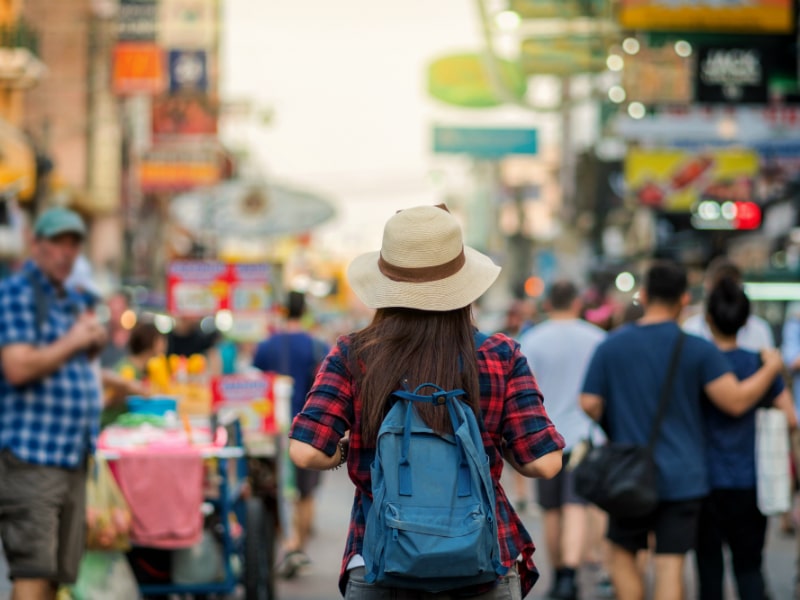We all love to travel: meeting new destinations, new friends… But in the case of people with disabilities, this is not only a pleasure, but also travelling has a therapeutic component. Travel has been shown to increase social skills, communication abilities and self-esteem.
Today we are going to tell you some of the benefits of travelling, focusing on people with disabilities, or any kind of special needs.
Travel benefits for people with disabilities
A first step out of the comfort zone
Traveling, especially if it is a long distance, means preparing for new experiences. Getting to know different cultures and customs, being surprised by different ways of dressing…
This requires an exercise in empathy and patience, since we must be prepared to make ourselves
understanding in everyday situations, changing our perspective. Because what for us can be a gesture that denotes a tremendous lack of education, in another part of the world can be a symbol of respect and admiration for the stranger who presents himself before another community, ready to share new life experiences.
Obviously, this generates an openness of vision, which makes us aware of how small the primary environment of the human being is.
But the new experiences carry (always) a “fear” prior to the unknown. A sensation instinctive and primal danger, which threatens our emotional stability. But at the same time, a feeling of attraction, like when a child feels the need to make a mischief, even knowing that he risks being punished. But the craving for adventure is stronger than anything else. This is what we call “getting out of the comfort zone”.
We all have an urgent need to get out of our comfort zone from time to time. But what about people with disabilities?
The world of every person with a disability is unintentionally limited by invisible social barriers, which make it more difficult to overcome small obstacles that, for the rest of society, are mere trifles. So when a person with a disability leaves his or her comfort zone, it is as if invisible walls as high as skyscrapers are falling. It is as if the Great Wall of China stood in front of a person and his dreams and suddenly knocked it down with a hammer.
Every small achievement is greater when it is achieved with effort and perseverance. And a strengthened self-esteem in the face of adversity is the first and foremost consequence that travelling has for people with any kind of disability. And even more so, if we bear in mind that broadening our horizons means getting out of the daily routine, meeting new friends and increasing our ability to relate to others.
Travel increases social skills
As we have mentioned before, travelling increases the capacity to put ourselves in the other’s place, which means an ease to empathise with other people’s concrete situations.

Moreover, the fact of leaving our most primary circle, makes us feel the need to talk to unknown people and, many times, make ourselves understood. This, which seems to be something unimportant, becomes a great instrument to improve our communication skills. Because whoever is able to make a new friend in a different, and sometimes even hostile, environment is able to speak in front of the general public, as he acquires resources and tools when it comes to exposing himself to others.
On the other hand, travelling provides us with memories and knowledge that we can use when we have to defend a position, an argument, or maybe a presentation before our bosses, or
customers.
Traveling makes us more sociable and more social. It teaches us to engage in conversation and gives us those “aces in the hole” we all need from time to time to overcome shyness.
On the other hand, travel increases creative capabilities. Today, there are organized trips that focus on getting inspiration to work on. Renowned chefs, painters, architects,
Perfumers, designers… All of them use the trips as a stimulus, with which they can connect with the muses, making the new ideas gathered during the experience, become sources to drink from when creating new projects.
Finally, travel makes our brain store memories and experiences that increase our culture. Because if you visit the Louvre, you may not remember all its works. But in your head, there will be a small picture painted in “Sfumato” called “La Gioconda”. Or perhaps an Egyptian sarcophagus covered in gold… Those ancient jewels, or the mummy that is presented lying down, inside a transparent glass urn, in view of every tourist eager to know.


